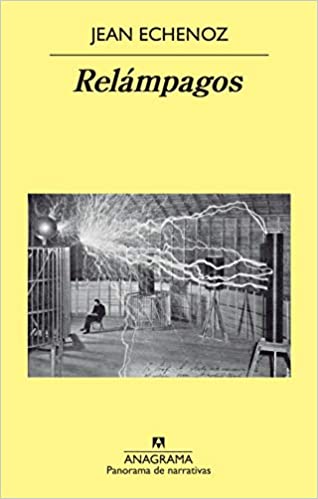Thought and humor are much more than irony as the only way of expression. Jean echenoz he is that thinker and writer capable of translating black on white all the ironies of the world. Whether in its form of a bad joke or sinister comedy ...
No wonder an author like Michel Houellebecq safely look your narrative stridencies as the most appropriate for an ad hoc avant-garde. A cultural outpost that advances with a present day that would overflow due to its haste at any time. Houellebecq is the writer who is because his compatriot Echenoz already seemed to guess the dislocation of everything long before the beginning of the XNUMXst century.
Thus, his privileged chronicle as a writer ends up being that record of calamities indistinctly drawn from reality or rescued from an imagination steeped in dreams. Everything can share the stage to the rhythm of an orchestra that has never been so out of tune, despite its bombastic ensemble and the deranged fanfare of the director on duty. To read Echenoz is to take a fixed point in the story and let yourself be hypnotized ...
Top 3 recommended novels by Jean Echenoz
14
Illusionary as man was back at the beginning of the 20th century, they called the First World War, the Great War, as if it were the only one capable of such destruction. Here we are today, waiting for a third one that is perhaps in motion in a more sinister and hidden way... The point is to discover those first men who rushed to the front in the hope that all that "World War" was nothing more than a kind of joke.
How to write about the Great War, the first "technological" war of the XNUMXth century, and the door, too, to half a century of unprecedented barbarism? Echenoz faces a new literary challenge that he masterfully overcomes. The accurate pen of the writer advances alongside the soldiers on their long days marching through the countries at war and accompanies four young men from the Vendée, Anthime and his friends, amid an indiscernible mass of meat and metal, projectiles and dead .
But it also tells us about the life that continues, far from the trenches, through characters like Blanche and her family. And all this without renouncing that subtle irony that characterizes his writing, an essential condiment of a passionate story. "This new novel concentrates and synthesizes the best of Echenozian writing" (Florence Bouchy, Le Monde).
Correr
There are discordant points, anomalies, geniuses that have not just risen from mere eccentricity. Those are the richest characters for a writer. And thanks to them the sensation of the human encompasses transcendence above official records and chronicles. Because only literature makes the myths, from Ulysses to Don Quixote, passing through an athlete from the former Czechoslovakia capable of running more than anyone, precisely because life was behind him, about to overtake him.
At the Inter-Allied Games in Berlin in 1946, seeing a single awkward athlete behind the Czechoslovakia poster, everyone laughs. But later, when in the five thousand meters he accelerates without stopping and crosses the finish line alone, the spectators explode in a clamor. The name of that boy who always smiles: Emil Zátopek. In a few years and two Olympics, Emil becomes invincible. No one can stop him: not even the Czechoslovak regime, which spies on him, limits his transfers and distorts his statements.
Emil runs against his decadence, and smiles. Even in the uranium mines where he is banished because he has supported Dubcek. Not even Moscow can stop it. Echenoz's new novel traverses forty years of an exceptional destiny and yet mysteriously similar to ours. And he gives us a ruffled writing of that priceless irony that for Echenoz is only a modest affection.
Lightning bolts
Some of Echenoz's novels, with their great burden of biography, captivate us with that anticipated sense of defeat from the way the characters face their destinies. In the disparity between wills and successes lies much of the mediocre advancement of a world determined to exalt the best charlatan.
Gregor has invented and discovered everything that is going to be useful for centuries to come: the wireless transfer of electrical energy using electromagnetic waves, alternating current, the filamentless light bulb, and the radio, among other things. But alas, he has difficulties with his personal affairs, perhaps because science interests him much more than profit.
Taking advantage of this trait of his character, other scientists will end up stealing everything from him. And Gregor, as his only distraction, and occupation, will only be left with the company of lightning and the theater of the birds. Although based on the life of the engineer Nikola Tesla, Lightning is an unpretentious biographical fiction with which the author, after Ravel and Correr, closes his splendid series on three lives.



